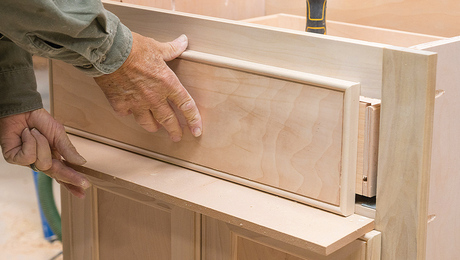I have always read that I should opt for the heavier gauge; i.e., 12 gauge, when buying an extension cord for use with my power tools, such as a 13 amp circular saw.
Can anyone tell me why I need 12 gauge when plugging into a house circuit that has 14 gauge wire? Is there less voltage drop going from the 14 gauge house circuit through the 12 gauge extension?
Would appreciate anyone explaining this basic electrical concept to me.



















Replies
less voltage drop with 12ga than 14 ga
also with an extension cord u are using a plug, more solid connections in the house.
Voltage across something = current thru it multiplied by its resistance
example cord has resistance of .1ohm/ft, 10 ft long resistance is 1 ohm ( i have no idea what a cords resistance is)
push 1 amp thru it then voltage across the cord (volatge drop) 1 volt
push 10 amps, voltage drop is 10 volts
bobl Volo, non valeo
Baloney detecter
Edited 3/23/2005 9:49 am ET by bobl
The more copper there is, the easier it is for the electrons to get to your saw. I only use a 14ga 25-foot extension cord for plugging in a 3/8" corded drill or a small sander for lightweight tasks. Anything like a skilsaw, sawzall, is going to be a 12ga cord. I have a 10ga cord for my tablesaw.
There is a voltage drop calculator somewhere online.... anyone?
Here's the voltage drop calculator I use. http://www.electrician.com/vd_calculator.html You should try to keep voltage drop at 3% or less if you can.
You can also try to plug your 12 ga. cord into a twenty amp circuit. Get as close to the circuit breaker as you can. The receptacle for the clothes washer is a good bet. That way you shouldn't be throwing breakers either.
Thanks to all for your replies. Will stick to the 12ga extension cord.